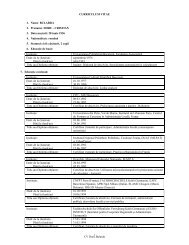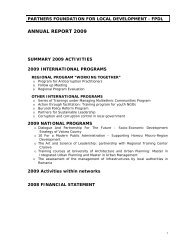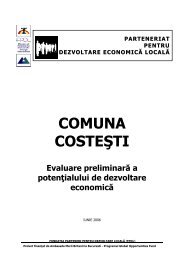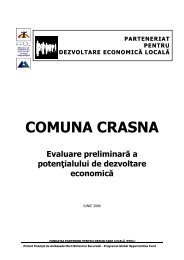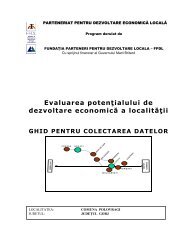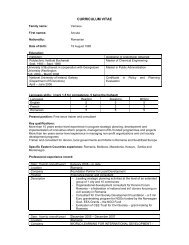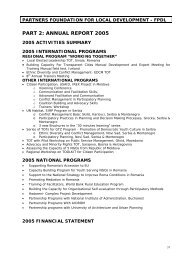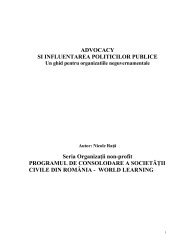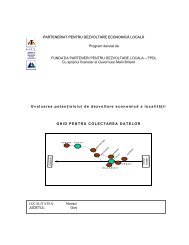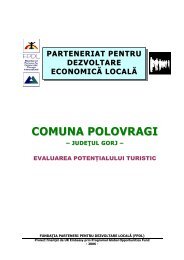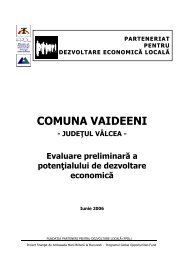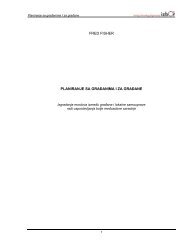Organizational Development: A Manual for Managers and ... - FPDL
Organizational Development: A Manual for Managers and ... - FPDL
Organizational Development: A Manual for Managers and ... - FPDL
You also want an ePaper? Increase the reach of your titles
YUMPU automatically turns print PDFs into web optimized ePapers that Google loves.
particular training proposals? Which technical means, e.g. video camera, TV-set, music,<br />
flipcharts; overhead projector, etc. are available?).<br />
8. METHODS (Which methods are to be employed in this case? How much of own trainees’<br />
in<strong>for</strong>mation <strong>and</strong> experience from their working environment may be used <strong>for</strong> processing? Which<br />
kind of new experience is to be created in a course of training? What kind of issues may be<br />
discussed in the groups? How many groups may be created? What should be processed<br />
individually? )<br />
9. TOOLS (Which instruments will trainer use? Brainstorming? Discussions? Case Studies?<br />
Inventories? Aids? H<strong>and</strong>outs? Games? Demonstration? Simulation? Questions <strong>and</strong> Answers?<br />
Action Planning? Humour? Why these ones? How are they balanced?)<br />
10.PROCESS DESIGN (How the topics taught or touched upon are combined in a process chain?<br />
How the beginning of a course is organised <strong>and</strong> trainees got involved in the process? How<br />
midterm responses from trainees are organised on each step <strong>and</strong> how the results are<br />
influencing following steps? How conclusions will come to trainees’ minds? When the<br />
dissatisfaction of themselves <strong>and</strong> discom<strong>for</strong>t of trainees are rising <strong>and</strong> when mastered by<br />
positive experience? What is the dynamic of utmost ef<strong>for</strong>ts <strong>and</strong> relaxation?)<br />
11.DELIVERY (Is trainer keeping control over the process? What kind of control is used? How<br />
participants are involved? Do they always keep attention? How participants are get relaxed? Do<br />
they respect trainer? Do they trust him? Is he able to re-design process quickly enough in a<br />
necessity? Is he able to respond to trainees’ request by relevant practical examples <strong>and</strong> clear<br />
explanations? What is the speed of the process? Who or what determines it?)<br />
12.OUTCOME (How participants have been altered in a course of training? What do they<br />
underst<strong>and</strong> differently? Which attitudes <strong>and</strong> pre-adjustments have been changed? Which new<br />
skills have appeared? Are they ready to use them in practice? What will happen now differently<br />
in working environment? Are they willing to get more training in a future? Would they like to get<br />
more training from the same school/trainer?)<br />
There may be much more questions along any item in the list. All the components of training are<br />
complex. Moreover, the training process itself is a most complex entity, which may be born as a<br />
child, developed in a right or wrong way, be sound or not, <strong>and</strong> die in a due time or earlier, or would<br />
be successfully finished later, but collapsed at a deadline. The components of training are<br />
interrelated in a way, which build the system in a classical term of the world: any component<br />
influences each other <strong>and</strong> it is under the influence of all others. It may be illustrated by Figure 1.<br />
195



